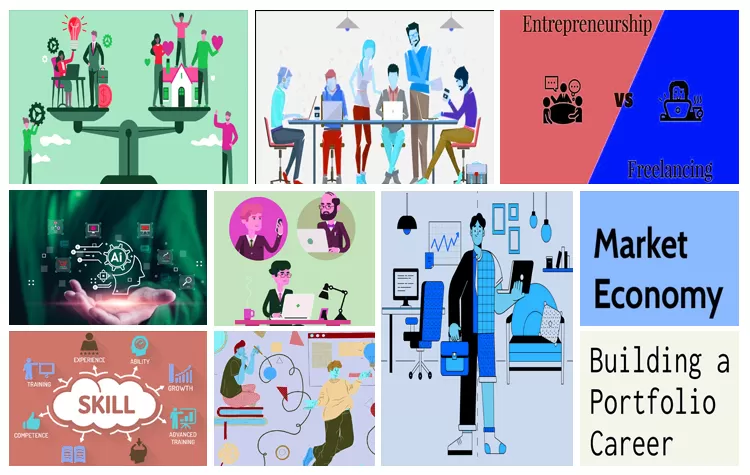
What was once an extra source of income a few years ago, freelancing is now the primary source of income for millions worldwide. It is a response to numerous technological breakthroughs and considerable changes in priorities in the workplace along with rising demands for flexibility at work. So why does freelancing form the groundswell of the future of work?
It allows one to manage work hours and location thus, affording one an improved work-life balance since this is the opposite of a conventional 9-to-5 job. Freelancers are able to set their own hours, so one can account for time to use in personal activities and to have what they term as free time which provides them with such excellent flexibility highly appealing to the individual who is free in his professional lives. Mainly, a conservative work obstructs individual freedom because of the assigned time in the office and the daily commutes, which most often lead to burnout.
What has made all the difference is the digital platforms, like Upwork, Fiverr, and Freelancer. It becomes extremely simple to connect with clients worldwide. Moreover, freelancers can communicate with clients all around the world by using collaboration platforms that enable cloud-based collaboration and communication software, like Zoom. Such innovations have resulted in much more opportunities for freelancers and granted them eligibility to serve at a much broader platform of projects.
More and more companies today engage freelancers for projects rather than permanent employees. Again, this is largely to gain skills particular for a project. In most cases, the niche or specialization of this freelancer's specialist expertise will be very specialized or specific to a specific business; perhaps web development, graphic design, marketing, or content creation. With this, the company would be able to avail of the best talents available without actually tying them up in the long run, flexible, and will save huge sums of money simply because they only pay for work rendered.
The COVID-19 pandemic moved the remote working concept to the fast lane. Freelancers are used to working from home way before the outbreak of the pandemic so fit well into this kind of change. As companies and organizations become more liberal towards embracing remote work, so they become liberal towards hiring freelancers with excellent quality of self-management and independent work capabilities. Thus freelancing now stands to have a broadened freelance job market as there will be no constraints in terms of location.
Entrepreneurship however is defined based on the way they manage their jobs in a certain space where they are free to choose certain projects and for a fee they can take per hour, and develops personal brand. Therefore what makes freelancing attractive to workers is an entrepreneurial aspect where they are looking to devise ways of evading long corporate chains and gaining control of their careers once again.
Millennials and Gen Z value flexibility, job satisfaction, and empowerment more than security of employment. Thus, these generations are more concerned with meaningfulness at work rather than job security, and freelancing enables them to take up different projects that mean something to them. This is indeed part of a broader movement; workers now want meaningful careers rather than corporate structures.
While freelancing does not provide job security with a steady paycheque kind of deals, it opens the window to unlimited earning potential. A freelancer can work on hundreds of projects at the same time and increase rates because skills keep upgrading. Many tech, consulting, and marketing freelancers, to mention but a few examples, end up making much more money than their full-time counterparts. Finally, freelancing has access to the world's best markets, engaging opportunities that far surpass locally.
Freelancing opens the door for professionals to create portfolios of income through working with different clients or having several projects at the same time. This portfolio career eventually breaks dependency on one employer, thus making it even more secure financially. With this multiplicity of income earnings, freelancers can then look towards growth in other areas or elsewhere in different industries.
For most freelancers, freelancing represents a stepping stone to full-time entrepreneurship. From a network of clients to fame in the industry, they can then offer their own agencies, consulting firms, or product-based businesses. Freelancers accumulate massive skills in project management, negotiation, and client relations- skills that lie central to the successful operation of any business.
Hybrids workforce models combine employees with freelancers, changing how businesses work. Freelancers enable companies to "scale up or down quickly and bring in specialized skill sets for specific projects." As a result, the business remains competitive, but it controls its costs and flexibility.
Conclusion
Freelancing is certainly no longer a trend. Freelancing has emerged into a phenomenon that's actually indispensable within the paradigm of work. With an increasing need for flexibility, independence, and special expertise, freelancing is bound to form a core part of the eventual character of work. And as more professionals and businesses begin to experience its power, it only becomes more apparent than ever that this way of doing work isn't going anywhere anytime soon.